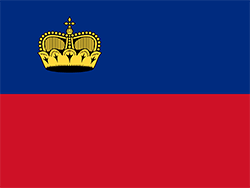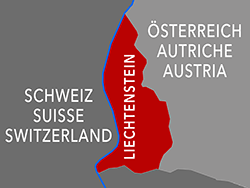The Principality of Liechtenstein (Fürstentum Liechtenstein) is a tiny landlocked state between Switzerland and Austria. It is a tax haven that has made it a world-renowned business centre. It is not a Swiss canton, although it is closely linked to the Swiss Confederation through a customs and currency union.
With an area of 160.5 km² and a population of 36,000, it is the 4th smallest independent state in Europe after the Vatican, Monaco and San Marino. It also has the second lowest unemployment rate in the world (just behind Monaco) and the highest GNP per capita. Moreover, Liechtenstein has no foreign debt.
Even though the country is tiny, there is a lot to see: the capital Vaduz, dominated by the prince's castle, the last wooden bridge over the Rhine, linking Vaduz to Sevelen, in Switzerland, Gutenberg Castle in Balzers, the mountain resort of Malbun (summer hiking and winter sports), etc.
Liechtenstein is not strategically important and has remained outside the major geopolitical upheavals of Europe. In the Middle Ages, the territory was part of the Holy Roman Empire and depended on the Habsburgs (just like the first Swiss cantons), and the principality was born artificially...
Austrian nobles, the Liechtensteins, bought the counties of Schellenberg in 1699 and Vaduz in 1712 from the Habsburgs, in order to have land directly under the Emperor to sit in the Diet, the assembly of the Empire's rulers. In 1719, the counties were united and became a principality, a sovereign state within the Holy Roman Empire.
But in 1806, the Holy Roman Empire was invaded by France and dissolved by Napoleon, thus releasing Liechtenstein from all obligations. The independent principality was born.
The principality remained neutral during the First World War and was not even the residence of its ruler. In 1918, the proclamation of the republic in Austria and the fear of Bolshevism prompted the princely family to take refuge in their principality, which they had ruled for two centuries but hardly knew.
Liechtenstein then moved closer to Switzerland, concluding a postal and monetary union and abolishing the border. However, the country remains a parliamentary monarchy where the prince has a veto over the people's decisions.
This absolutist power of the prince was even confirmed in 2012 by 76.1% of the votes in a referendum that demanded reform!
 |
The Pictorial Guides
© fusions.ch 1988-2025
All rights reserved for all countries |

|






